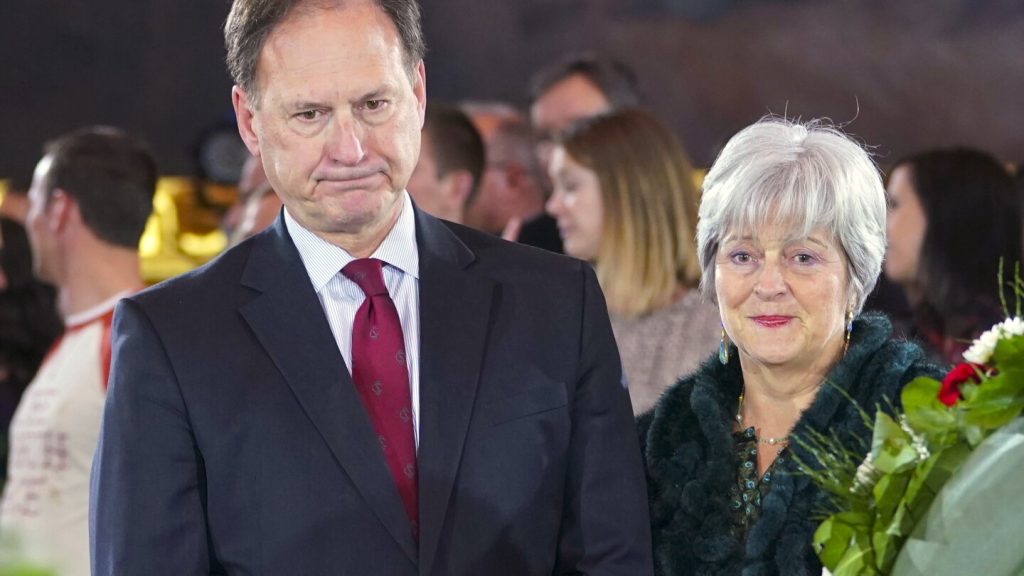An incident involving an upside-down U.S. flag flying over the home of Supreme Court Justice Samuel Alito has raised questions about the legitimacy and ethics of the high court. The flag, seen as a symbol of protest by Trump supporters who claimed the 2020 election was fraudulent, has sparked concerns about the partisanship of the institution. Calls for Alito to recuse himself from cases related to Trump and the Jan. 6 riot have been made by Democrats in Congress, but it remains unclear whether he will do so. The revelation of the flag flying at Alito’s home adds to existing criticism of the high court’s lack of strict ethical guidelines and perceived partisan bias.
The involvement of spouses of Supreme Court justices in questioning the legitimacy of the 2020 election has further added to the concerns about the court’s impartiality. Justice Clarence Thomas faced calls for recusal after reports of his wife’s involvement in efforts to overturn President Joe Biden’s election win. The issue of spouses having politically known viewpoints raises questions about recusal guidelines for judges. While ethical guidelines generally require judges to recuse themselves in cases where their spouses have a financial interest, the situation becomes less clear when spouses have publicly known political views. The lack of strict enforcement mechanisms for the court’s ethics code adds to the challenges of ensuring impartiality within the institution.
The controversy surrounding Alito’s wife hanging the upside-down flag during a dispute with a neighbor reflects the intersection of politics and personal bias in everyday life. While individuals may hold personal opinions, the duty of a judge is to maintain impartiality and avoid overt displays of bias. The incident involving the flag at Alito’s home has sparked discussions about the growing distrust of the U.S. Supreme Court and the potential consequences of perceived political influence on judicial decisions. Calls for recusal by justices in cases related to political figures and events highlight the challenges of maintaining judicial independence and ethics within the legal system.
The lack of a mechanism to sanction Supreme Court justices for conflicts or other wrongdoing underscores the need for greater accountability within the court. While lower-court judges can face penalties for conflicts or ethical violations, Supreme Court justices are not subject to such mechanisms. The existing process for impeaching a Supreme Court justice, which has only occurred once in history, remains a limited avenue for addressing ethical concerns. Advocacy groups pushing for judicial ethics and accountability emphasize the importance of establishing protocols for addressing conflicts and maintaining public trust in the judiciary.
Overall, the incident involving the upside-down flag at Justice Alito’s home has raised broader questions about the impartiality and ethics of the U.S. Supreme Court. As the court considers high-profile cases related to Trump and the Jan. 6 riot, calls for recusal by justices and concerns about perceived political bias highlight the challenges of maintaining judicial integrity. The lack of strict enforcement mechanisms for ethical guidelines within the court, coupled with the absence of a mechanism to sanction justices, underscores the need for greater accountability and transparency in ensuring the independence and credibility of the judiciary.


